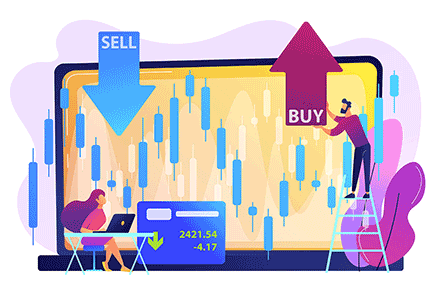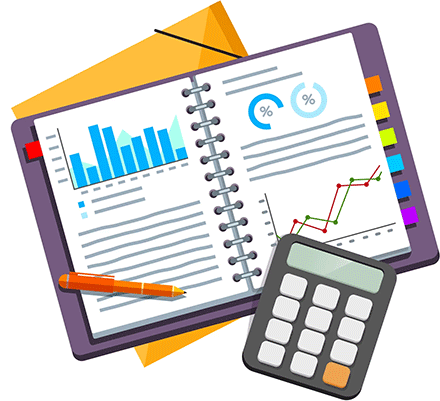The journey into the world of financial markets, be it Forex, stocks, or commodities, can be intimidating for both novice and experienced traders alike. The complex jargon, myriad strategies, and the ever-present risk of financial loss make for a landscape that is as challenging as it is exciting. It is in this context that demo accounts stand out as an invaluable tool, serving as a bridge between theoretical understanding and real-world application. Designed to simulate real trading environments, demo accounts offer an effective, risk-free way to learn the ropes, test strategies, and develop the psychological resilience needed for live trading. This review emphasizes the significance of demo accounts as an educational tool and the necessity of segregated accounts for traders' protection.
Risk-Free Learning Environment
The most immediate benefit of a demo account is the zero financial risk involved. Traders can engage with the market, make trades, and learn from their mistakes without the fear of losing real money. This creates a conducive environment for learning, where individuals can focus on understanding market dynamics and trading mechanisms rather than worrying about financial losses.
Understanding Platform Functionality
Trading platforms can be complex, with various tools and features designed for different trading strategies. The demo account offers a sandbox environment for traders to get comfortable with these tools, such as indicators, charts, and order types. Understanding the ins and outs of the platform can improve trading efficiency and could potentially lead to better decision-making in live trading situations.
Strategy Testing and Optimization
Demo accounts are not just for beginners; even experienced traders can use them to test new trading strategies or optimize existing ones. The demo environment provides the opportunity for back-testing, scenario simulation, and sensitivity analysis, allowing traders to refine their techniques before applying them in the real market.
Psychological Preparedness
Emotional and psychological factors can often influence trading decisions, sometimes to the detriment of the trader. The demo account offers an avenue for traders to understand their emotional triggers and to practice discipline and stress management. Essentially, it's a way to practice trading psychology in a safe environment.
Preparation for Real Market Conditions
Lastly, demo accounts often simulate real market conditions, incorporating elements like slippage, spreads, and market liquidity. This prepares traders for the kind of conditions they will face when they transition to a live account, reducing the culture shock and learning curve associated with this move.
In sum, demo accounts serve as a comprehensive, risk-free training ground for traders. From understanding trading platform functionality and testing strategies to preparing psychologically for real trading, these accounts offer a well-rounded educational experience.
They act as the stepping stone that prepares traders for the rigors of the real financial markets, making them an indispensable tool in the trading ecosystem.
Related Materials
Forex trading, an intricate dance of buying and selling currency pairs such as EUR/USD, GBP/USD, and USD/JPY, operates continuously five days a week. Often called foreign exchange trading, the core objective is to profit from shifts in currency pair values.
The forex market has witnessed a rise in the popularity of Percentage Allocation Management Module (PAMM) services, as both retail traders and institutional investors seek out ways to diversify their portfolios and earn passive income. As 2023 unfolds, it's pivotal to identify which brokers are at the forefront of offering top-notch PAMM services..
Copy trading, a revolutionary method in the trading world, has emerged as a boon for both seasoned traders and beginners. It's an automation process that allows traders to mirror the moves of more experienced counterparts.
If the concept of hedging in the world of Forex has left you intrigued, search no further. This comprehensive article will unravel the intricacies of Forex hedging, furnish you with a practical example of a Forex hedging strategy, and delve into the "Hold Forex Strategy" and more.
The Forex market is the largest financial market globally, with a daily trading volume exceeding $6 trillion. Forex trading has become increasingly accessible to retail traders, thanks to the proliferation of online Forex brokers. However, selecting the right broker is a critical decision that can significantly impact your trading success.
Leverage is a powerful tool in the world of forex trading. It allows traders to control a large position size with a relatively small amount of capital, amplifying both profits and losses. While leverage can enhance potential gains, it also comes with significant risks. Therefore, choosing the right forex broker and evaluating their leverage offering is crucial for traders seeking success in the competitive forex market.
In the vast and dynamic landscape of global finance, the Forex market reigns supreme, presenting both unparalleled opportunities and significant challenges. At the heart of this complex ecosystem is the principle of risk management, a foundational pillar for anyone looking to navigate the often turbulent waters of Forex trading. In essence, risk management in Forex trading isn't merely a safety mechanism; it's an integral part of a holistic trading strategy, ensuring sustainability, promoting discipline, and maximizing the potential for success.
Brokers have a variety of ways in which they charge traders for their services. Understanding these fees and commissions is crucial for any trader who wants to manage their trading costs effectively.
The dynamics of the Forex market have dramatically evolved over the past few years, not just in terms of technology and tools, but also in how traders interact and share information...
Currency exchange rates are one of the most closely watched and analyzed metrics in the global financial market. Every day, businesses, tourists, governments, and traders seek to understand and anticipate changes in these rates, as they affect everything from the price of your morning coffee to billion-dollar business deals...
Trusted Forex Brokers
| Broker | Review | Rating | |
|---|---|---|---|
| 1 | HF Markets | ||
| 2 | NordFX | ||
| 3 | Octa | ||
| 4 | FXCM | ||
| 5 | Interactive Brokers | ||
| 6 | ActivTrades | ||
| 7 | FXTM | ||
| 8 | easyMarkets | ||
| 9 | HYCM | ||
| 10 | SaxoBank | ||
| 11 | FxPro | ||
| 12 | Moneta Markets | ||
| 13 | XM | ||
| 14 | FOREX.com | ||
| 15 | Admirals | ||
| 16 | eToro | ||
| 17 | FIBO Group | ||
| 18 | Pepperstone | ||
| 19 | PrimeXBT | ||
| 20 | IronFX | ||
| 21 | Forex4you | ||
| 22 | InstaForex | ||
| 23 | INGOT Brokers | ||
| 24 | Swissquote Bank | ||
| 25 | Oanda |









